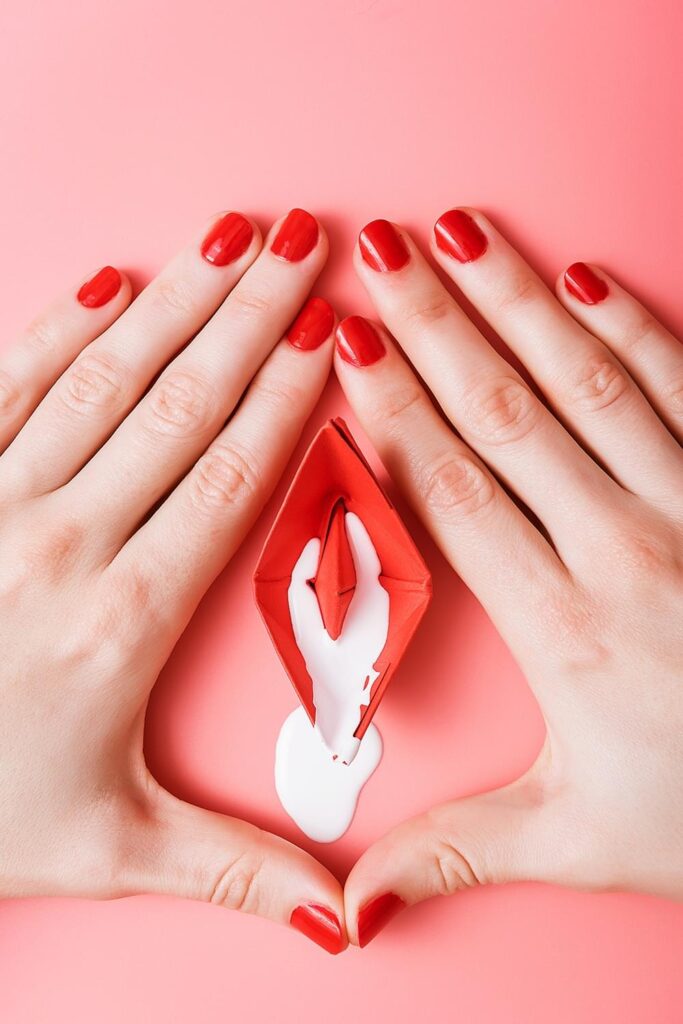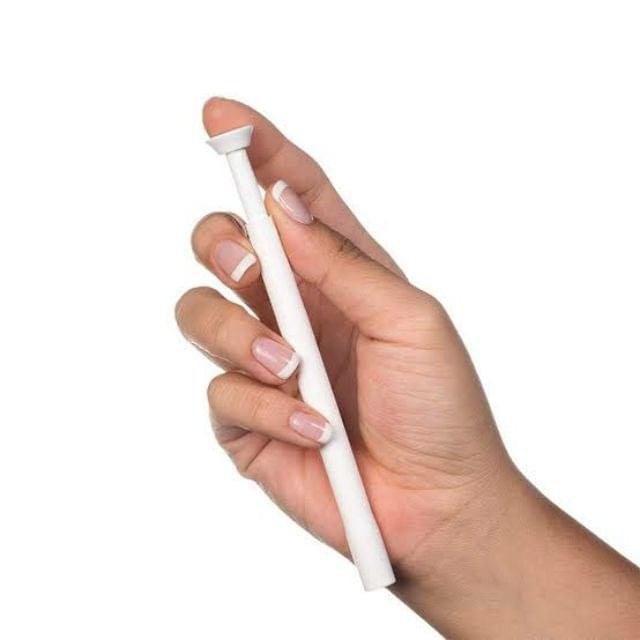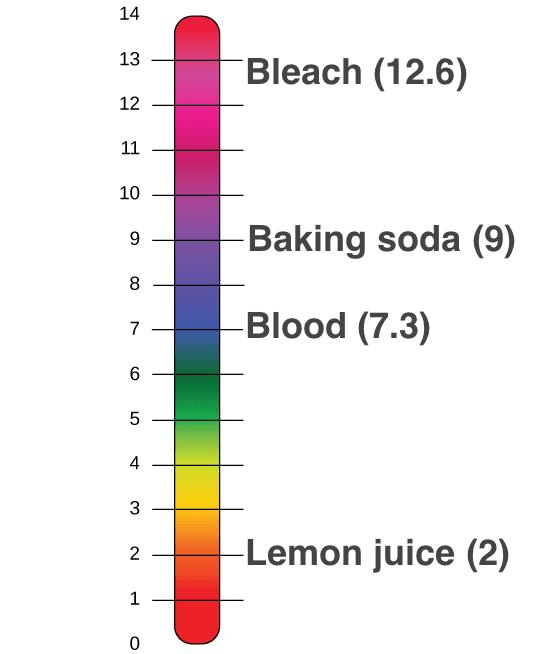Your feminine health should never be compromised.

Dr. Barb
Co-Owner, Kushae Cares
Our Mission…
Dr. Barb was diagnosed with breast cancer at 38. Despite her medical training as an OB/GYN she spent days helping women with managing their feminine health while fighting for her life.
At Kushae Cares We want to break the cycle of the overuse of antibiotics and harmful chemicals that are harsh on our bodies. We give women advice on natural alternatives to chemical-laden products on the market, while educating them on how to use these products to maintain their intimate health.
Your feminine health should never be compromised.
That’s why Dr. Barb and her partner Kimba search endlessly for intimate care products for women, to protect and restore your lady parts to their healthy, soft, supple glory.
And don’t worry about using unfamiliar products on your Kushae! Each ingredient we may recommend has been thoroughly tested (never on animals) and researched by founders Dr. Barb and Kimba the Natural Diva, so you can feel confident knowing that Kushae Cares will only discuss products that will keep you clean and fresh without burning or drying out your intimate areas.
Fighting Period poverty
Period Poverty refers to the inadequate access to menstrual hygiene resources, supplies and education, including but not limited to sanitary products, washing facilities, and waste management.
It is a global issue affecting women, girls, and people who menstruate who don’t have access to the safe, hygienic menstrual products they need, and/or who are unable to manage their periods with dignity, sometimes due to community stigma and superstitious beliefs.

Why is Kushae joining the fight to end period poverty?
We KNOW that keeping girls in school and ending the shame and stigma around periods is important for not only their own mental health, physical health, and well-being, but for the success of the entire community that they live in.
When a girl completes secondary school, she is less likely to be a victim of child marriage, face domestic abuse, and suffer from long-term health complications. As a result, educated women and girls are more likely to have fewer, healthier children. These children then, in turn, are more likely to get an education and pull themselves out of poverty.
JOIN Kushae in the fight to end Period Poverty. We are committed to providing the following resources to support and educate girls and women to end period poverty once and for all. Period.
Haiti – Providing “Dignity Kits” – reusable buckets, soap, hygiene products” to provide a sanitary solution for menstrual cycle needs
Jamaica – Providing “Kushae Kits” – free menstrual products and menstrual education resources
Sudan – Providing free menstrual products, menstrual education resources, and working with partnering organizations to empower local women to make reusable pads.
Kushae Cares is a 501(c)3 Nonprofit formed by women to help women. Though we, the founders, were blessed to grow up in America, women around the world suffer intolerance and abuse for the most natural act on earth, menstruation. And even when judgement and societal abuse isn’t “the main problem”, the internal struggle is omni-present. “Do I look bloated” “No, I’m not in a bad mood”
Through education, awareness campaigns, and advocacy efforts, Kushae Cares aims to promote access to information and resources that allow individuals to make informed decisions about their sexual and reproductive health.
The Kushae Cares works to combat stigmas surrounding menstruation, menopause, and other aspects of vaginal health, and strives to ensure that individuals are able to access affordable and comprehensive reproductive health care, including contraception and abortion services.
In addition to advocating for policy changes and promoting awareness of vaginal health issues, Kushae Cares also provides support services to individuals affected by vaginal health concerns. These services may include counseling, referrals to medical providers, and community-building events designed to foster a sense of solidarity and empowerment among individuals with vaginas.
Overall, Kushae Cares is committed to promoting the rights and well-being of all individuals with vaginas, and to creating a world where vaginal health is recognized as an integral part of overall health and well-being
5 Key “Secrets” To Healthy Vaginal Hygiene…
Vaginal Hygiene Secret #1:
What Should I Do About Vaginal Discharge?
What Should I Do About Vaginal Discharge?

If you’re like most women, you’re probably pretty familiar with vaginal discharge. In fact, you may even know what kind of discharge is normal for your body and what isn’t. But even if you are an expert on the subject, there’s always more to learn about vaginal discharge!
This article is a complete vaginal discharge guide, where we will discuss all there is to know: what it is, what kinds of changes to look out for, and how to know if there may be any issues with your vaginal discharge that would warrant a visit to the doctor.
What Is Vaginal Discharge?
Vaginal discharge refers to any fluid or substance released from the vagina. This can occur at different times in a woman’s menstrual cycle, and it may have many different colors (white, clear), textures (thick, thin), smells (sweet-smelling), or even tastes!
You may notice that your vaginal discharge changes throughout each month. This is completely normal and is due to the changing levels of estrogen and progesterone in your body.
Types Of Vaginal Discharge
When it comes to vaginal discharge, you might find that the colors of your discharge may change. So, what exactly does it mean, and what color is concerning? We’ve broken down the most common types of vaginal discharge below.
White
White discharge can be normal, or it can indicate an infection. For example, if your discharge is white and thick, like cottage cheese, you may have a yeast infection. Make sure to contact your doctor if you have these symptoms. However, a light yellow or cream color discharge is likely to be healthy and isn’t associated with any other symptoms.
Clear
Clear discharge is also considered a healthy color of discharge. However, depending on if you’re feeling any other symptoms, it can also be a sign of pregnancy, hormonal imbalances, or ovulation. Therefore, it’s essential to speak with your doctor if you’re experiencing clear discharge accompanied by other symptoms.
Brown
Brown vaginal discharge is not considered healthy and, in fact, can be indicative of a severe problem such as Bacterial Vaginosis. If you’re experiencing brown discharge along with any other issues such as strong odors, irritation, or itching, it’s essential to seek medical attention right away as it can be a sign of a more severe problem.
Yellow/Green
Green discharge is typically a sign of an infection such as Trichomoniasis, which can be transmitted through sexual intercourse. Therefore, it’s essential to seek medical attention right away if you’re experiencing green discharge along with other symptoms such as clumpy or thick discharge.
Red
Red or pink discharge can be a sign of implantation bleeding. However, if you’re experiencing these symptoms alongside other issues like pregnancy cramps and nausea, then it’s probably just your period! Nevertheless, it’s essential to seek medical attention right away if you’re experiencing red or pink discharge along with other symptoms such as clumpy or thick discharge or any other type of pain.
When Should I Consult With A Doctor?
If you’re experiencing any changes in your vaginal discharge and pain, it’s essential to consult with a doctor. This is especially true if the discharge is accompanied by other symptoms like itching, burning, or an unusual smell.
It’s also essential to see a doctor if you haven’t had a period in more than three months, as this could indicate that something is wrong with your body (such as PCOS) or if you’re experiencing any other symptoms like fatigue and weight gain. If you’re worried about a possible STI, getting tested right away is essential because some infections can be easily treated while others are more difficult to treat.
Remember that you know your body best, so it might be time to contact a professional who can offer some medical advice if something doesn’t feel right.
What Should I Do If Something Doesn’t Feel Right?
If you’re experiencing any changes in your vaginal discharge, it’s essential to pay attention to your body and what’s going on. If you have any questions or something doesn’t feel right, it’s time to follow our tips below.
Consult A Doctor
The first step is always to consult a doctor if you’re feeling concerned about your vaginal discharge. They will be able to help guide you and give you advice on what to do next. This might include testing, treatment, or just some reassurance that everything is normal!
Purchase The Right Products
If you are experiencing a yeast infection or other issue, it’s essential to purchase the right products to help treat the disease. This might include over-the-counter medication, a prescription from your doctor, or even some suppositories to help treat the issue. You can also purchase products that help prevent infections, such as panty liners or cotton underwear, in order to keep it as dry as possible down there.
Refrain From Exercise
One thing to keep in mind if you’re experiencing any type of unusual vaginal discharge is that you might need to refrain from exercise. This is because sweat and bacteria can aggravate the issue and make it worse. So, take a break from the gym until you’ve gotten your discharge under control!
Shower Frequently
Another helpful tip is to shower frequently. This will help keep the area clean and reduce bacteria build-up, which might be causing your unusual discharge. This is especially important if you work in a setting where you’re sweating a lot or around other people who might have infections that can be transmitted through skin contact!
Wear Cotton Underwear
Finally, make sure that you’re wearing cotton underwear. This will help wick away moisture so it doesn’t get trapped next to your skin, where bacteria can grow quickly.
These are just some tips to help you keep your vaginal discharge under control. Remember, unusual discharge is not normal and should be addressed right away by a doctor or medical professional, so it doesn’t get out of hand!
Conclusion
While it might seem like an uncomfortable topic to talk about sometimes, it’s essential to be aware of the different types of vaginal discharge and what they might mean. So, if you’re experiencing any changes in your discharge, follow our tips to help get it under control!
Vaginal Hygiene Secret #2:
How Do I Get Rid Of Vaginal Odor?
How Do I Get Rid Of Vaginal Odor?

Do you have a fishy smell down there? If so, don’t worry, you’re not alone. Many women experience vaginal odor at some point in their lives. There are many different causes of vaginal odor, but fortunately, there are also many ways to get rid of it. In this blog post, we will discuss the top vaginal smell remedies as well as the way to differentiate between normal odor and discharge.
Is It Normal To Have Vaginal Odor?
Women have a natural odor. This can be enhanced depending on your diet, sexual activity, and the time of the month. If you feel like something smells off down there, this is most likely due to an infection or another underlying cause that should be treated as soon as possible. So how will you know if it’s a normal discharge from my vagina?
The normal smell of a vagina can be described as musky, metallic, or fleshy. However, this can change depending on your cycle, changes in hormone levels, pregnancy, or even menopause can impact the scent of your vagina.
Top Ways To Get Rid Of Vaginal Odor
While it can be completely normal to have some type of vaginal odor, there may be times when it’s too pungent for your liking. Here are our top vaginal smell remedies that can help you get rid of any unwanted odors:
Invest In Proper Hygiene
It’s no surprise that proper hygiene is a great way to prevent any unwanted smells. You should be cleaning your vagina with warm water and soap once or twice a day. However, it’s important not to overdo it as this can cause irritation, leading to an even worse odor down there.
Eat A Balanced Diet
If you’re eating lots of sugary foods, it may be the reason why your vagina smells. Eating a balanced diet is one of the best things you can do for your health, and that includes down there! Feeding yourself with lots of fiber and protein while incorporating lots of vegetables is an easy way to help reduce any odors you may be experiencing.
Wear Breathable Underwear
One of the easiest ways to get rid of vaginal odor is by wearing breathable underwear made out of materials such as cotton. This allows your vagina to breathe instead of being trapped and sweaty in those tight pants all day long. However, try to also ensure that the underwear you choose isn’t too tight, as this can also cause bacteria to build up and create an unpleasant odor.
Avoid Strong Soaps And Other Irritants
The last thing you want to do when dealing with a foul-smelling vagina is to use products that will irritate it. So while it’s essential to keep yourself clean, you want to avoid using products that have a heavy fragrance. This also includes checking the laundry detergent you use as well to ensure there are no harmful chemicals that could cause unnecessary reactions.
Don’t Linger In Wet Swimsuits Or Clothing
Another great vaginal smell remedy is to change out of your wet swimsuit or sweaty clothes as soon as possible. By allowing yourself to stay in damp clothing, you’re creating a breeding ground for bacteria, leading to an unpleasant smell down there! So when you’re done swimming or working out, you’ll want to ensure your shower and put on dry clothing to protect your vagina.
Invest In Probiotics
Another way to help get rid of vaginal odor is by taking probiotics. This can help regulate the bacteria down there and minimize any bad smells. You can either take a probiotic supplement or eat yogurt, which contains live cultures that will help to improve your gut health overall.
Add Boric acid suppositories for BV
If you find that a thick, white discharge accompanies your vaginal odor, then you may have bacterial vaginosis (BV). This can be treated with over-the-counter boric acid suppositories. Boric acid is a natural antifungal and antibacterial agent that can help to clear up any infection fairly quickly. You can also take Boric acid as a preventative measure to help ensure you don’t have any issues moving forward with funky smells or odors.
Incorporate Deodorant Spray
Another way to help get rid of vaginal odor is by using a deodorant spray specifically designed for the vagina. You can use this type of product any time you need some quick freshening up after a workout or even during your period as well! This will help keep odors at bay and help you feel refreshed, regardless of what’s going on in your everyday life.
Drink More Water
Drinking more water is one of the best ways to get rid of vaginal odor because it helps keep your body hydrated and flushes out toxins that can cause an unpleasant scent. By drinking at least eight glasses a day, you’ll also notice fewer headaches, better digestion, clearer skin – all leading up to feeling great from head to toe!
When Should I See A Doctor?
While you use all of the above steps to help get rid of an odor, there may be times when it’s better to see a medical professional instead of relying on home remedies. For example, if you have a persistent, foul smell that doesn’t seem to be going away no matter what you do, then it’s time to schedule an appointment with your gynecologist.
Additionally, if you experience any other symptoms such as itching, burning, or inflammation down there, then it’s best to get checked out as soon as possible. These could be signs of a more serious infection that needs to be treated right away.
Conclusion
If you’ve experienced vaginal odor, you’re not alone. The best way to get rid of a vaginal odor is by keeping it clean and dry. You can do this by showering regularly, changing out of wet clothes as soon as possible, avoiding certain foods that may cause irritation like spicy foods or alcohol (if you drink), wearing cotton underwear instead of nylon ones because they breathe better!
Vaginal Hygiene Secret #3:
Why Do I Have A Yeast Infection?
Why Do I Have A Yeast Infection?

Yeast infections are caused by yeast overgrowth and can be contracted through sexual contact. However, yeast infections can also result from antibiotic usage, pregnancy, and menopause. The most common causes of yeast infections:
Sexual Contact
Yeast infections can be spread through sexual contact but are not considered a sexually transmitted disease. This is because yeast is present in the body of both men and women and, while it can overgrow under certain conditions, sexual contact is not always the cause.
Antibiotics
Antibiotics kill both the good and bad bacteria in your body, which can lead to an overgrowth of yeast. If you’re consistently on antibiotics, yeast infections may become more common for you.
Pregnancy
Another common cause of yeast infections is pregnancy. Pregnant women are more likely to get yeast infections because hormonal changes during pregnancy create a more yeast-friendly environment.
Birth Control
Women who take hormonal contraception such as the pill are also more likely to get yeast infections because these medications also change hormone levels and can allow yeast overgrowth.
Diabetes
When a woman has diabetes, their urine contains excessive sugars, which is harmful to the vagina. This may also create yeast overgrowth.
Menopause
Decreased estrogen levels during menopausal years can also lead to yeast overgrowths in women who have previously experienced them. This is due to changes that occur in the vaginal environment that make it more yeast friendly.
Can A Yeast Infection Be A Genetic Defect?
A growing number of studies have shown that there is a direct correlation between yeast infections and hereditary factors. Therefore, if yeast infection runs in your family, you are more likely to get yeast infections. However, this does not mean that if you have a yeast infection, then other family members do as well, as only a low percentage of women are impacted by yeast infections due to genetics.
Vaginal Hygiene Secret #4:
What are Boric Acid Suppositories?
What are Boric Acid Suppositories?

Boric acid has been used for centuries to treat vaginal infections and help restore pH balance. Boric acid or H3BO3 is a weak acid that derives from boric oxide.
It is used as an antifungal and antiviral substance to help treat several bacterial infections in the vagina. If you are prone to yeast infections, bacterial vaginosis, urinary tract infections, boric acid can alleviate the symptoms.
So how do boric acid suppositories work and what are they good for? Boric acid contains Lactobacilli, the bacteria living inside the vagina that helps maintain its acidity and stabilizes its pH balance. In other words, boric acid helps to balance the vaginal environment. Boric acid prevents the overgrowth of yeast and bacteria living inside the vagina. In turn, boric acid treats many symptoms of vaginal bacterial infections.
These symptoms include but are not limited to burning sensation, painful urination, foul vaginal odor, itching, and abnormal discharges. It is also beneficial to take boric acid suppositories when you need to feel balanced ‘down there’. Boric acid is safe to use after sexual intercourse, menstruation cycle, or anytime your pH feels off. Ladies, do not wait until there is an infection to add boric acid to your vaginal care.
According to our co-founder Dr. Barb, OB/GYN, she recommends the following doses for her patients, per the American College of Obstetrics and Gynecology (ACOG) guideline:
For Yeast
Acute (current infection) – Insert 1 suppository capsule into vagina once daily for 2-3 weeks.
Prophylaxis (for women prone to yeast infections who want to prevent future infections) Insert 1 suppository capsule into vagina twice a week for 6 months.
The vagina is sensitive and many things can disrupt its natural flora, such as sexual activities, douching, or wearing tight underwear.
Vaginal Hygiene Secret #5:
Why Is Vaginal PH Balance So Important?
Why Is Vaginal PH Balance So Important?

Yeast infections, Bacterial Vaginosis (BV), Vaginal Odor…
These are all affected by the pH of your most intimate areas. So why hasn’t anyone explained this whole pH thing in the first place? Sounds like a quick lesson on what vaginal pH balance is would have been a good idea, right? Well buckle up buttercup, a pH lesson is happening right now.
Let’s start with the basics:
The pH scale goes from 0 to 14. 0 being the most acidic (think batteries) and 14 being the most alkaline, or basic (think drain cleaner). For those of us visual gals, see the chart below.
This infographic is a great one. The million dollar question is: what is the optimal vaginal pH level?
The answer?
Your vagina is happiest at a pH of 3.8-4.5….which means “she” prefers to be acidic. Not even slightly acidic, but all the way acidic. Have you ever noticed a “bleached” effect in your panties? Your vaginal discharge is acidic enough to even “bleach” or remove the color from your underwear fabric. #teamacid
So why is pH balance important? When your vagina (both internally and externally) is pH balanced, it allows good bacteria to thrive and keeps bad bacteria and yeast at acceptable levels. When the pH balance is disrupted, or thrown off, it can lead to an imbalance in bacteria and yeast levels, causing all sorts of issues, including bacterial infections, BV, yeast infections, and more.
So, any thing you use to clean your vagina (externally) should be pH balanced or more acidic in its composition. Let’s be clear, we’re stressing external, here. Douching is not healthy for your vagina, but cleaning your external vagina (aka vulva) is what we’re talking about.
Let’s put that into perspective. Soaps of all kinds are made from the same “base” and are always alkaline. They range in pH from 8-10, and some can be as high as 13! Not nice for your “kushae” aka vagina, as such a strong shift in your vaginal pH level is bound to cause issues.